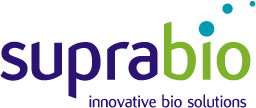The project is organised into nine work packages as shown in the table below. For more information, click on the work package.
| # | WP name | Work package leader |
| WP1 | Biorefinery Feedstocks | BioGasol ApS |
| WP2 | Second Generation Biofuels | Brunel University London |
| WP3 | Platform Chemicals | University of Aalborg |
| WP4 | High Value Added Products | Borregaard Industries Ltd |
| WP5 | Process Integration | Statoil ASA |
| WP6 | Industrial Pilot Scale Demonstration | BioGasol ApS |
| WP7 | Sustainability of the Entire Value Chain | IFEU - Institute for Energy and Environmental Research |
| WP8 | Public Dissemination and Marketing Plan | BTG Biomass Technology Group BV |
| WP9 | Management | Brunel University London |
The project work plan consists in taking the selected feedstocks (WP1), separating them into major components (WPs 1, 6) and working these components up into second generation biofuels (WP 2), higher value intermediates (WP 3) and very high value products (WPs 3, 4). In addition to developing new technologies, the efficient use of carbon and management of utilities within biorefineries is developed (WP 5). Since the viability of sustainable and economic biorefineries is based on optimising the value (monetary, social and environmental) of the product mix, the integration of unit operations and material flow is demonstrated within the project by the exchange of materials between partners, by laboratory proofs of concept and by larger scale production (WP 6). The overall aim of the work plan is to capitalise on the structural and chemical potential that is available within the selected biomass feedstocks that is not captured in more conventional approaches. Where possible the molecular complexity of biomass is retained for utilisation in bioactive molecules, antioxidants, flavourings and high value feedstuffs/additives (WP 4). Similarly, an approach is developed to retain structural elements for use in nano materials (WP 4). The results of the work are put into an economic context based on the achieved results and the potential of available markets (WP7). Assessing the project results is also part of the plan, achieved in WP 7 by a full life cycle analysis that includes economic, social, geographical and environmental impacts. These results will be used in WP 8 to develop a strategy for implementing the results of SUPRABIO, for market penetration of the potential products and to inform the broadest audience about the activities of the partnership.



